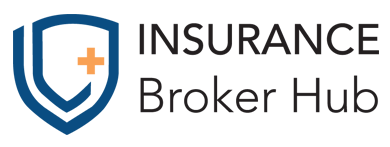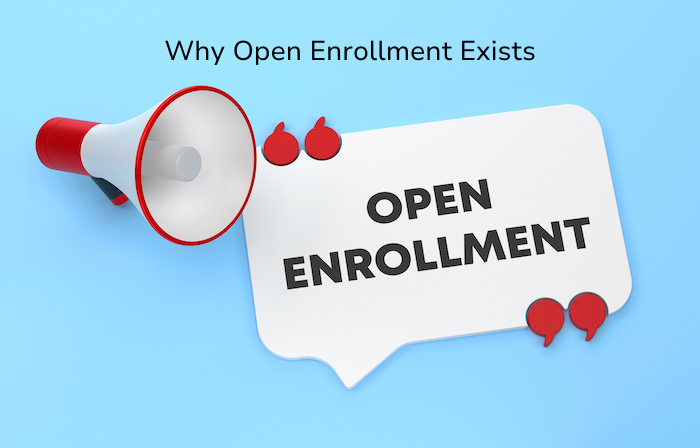Health insurance is a vital component of our lives, providing a safety net in times of illness or injury. However, the process of obtaining health insurance isn’t as straightforward as one might assume. You can’t just sign up for it whenever you please. Instead, health insurance enrollment is limited to a specific time frame known as “open enrollment.” Open Enrollment for 2024 is starting on November 1st, 2023 till January 1st, 2024.
More than 16.3 million people enrolled in the 2023 program – a consecutive record which is set to be shattered again in 2024. This is because of the cost benefits and reliability the open enrollment plan offers. But considering the mechanics that come into play here, a simple question arises; why does this limitation exist in the first place?
In this article, we will explore the concept of open enrollment and why it is a crucial aspect of the health insurance industry.
Understanding Adverse Selection
To comprehend the necessity of open enrollment, we first need to grasp a fundamental concept known as “adverse selection.” Adverse selection is a phenomenon in which individuals tend to purchase health insurance when they are unwell and opt to go without it when they are in good health. This behavior poses a significant challenge to health insurance companies.
Here’s an example to help you grasp the concept better;
Imagine there is a health insurance company called ABC Company, and they offer an annual premium of $4,200. Now, consider a policyholder named John who falls ill and incurs medical expenses totaling $10,000 within a year. His annual premiums alone cannot cover this cost.
To bridge the gap, ABC Company relies on premiums paid by healthy individuals who did not require medical care that year. If there aren’t enough healthy policyholders contributing premiums, the company would struggle to finance the healthcare expenses for those who are sick. This would lead to two things;
- John would have paid premiums and even still have to go out of pocket to cover his expenses, which isn’t ideal for him.
- The insurance company would end up having to pay the expenses after taking a loan. This would not be good for anyone either as the company may end up going out of business.
This situation can push health insurance companies to a crossroads, where they must choose between going out of business or increasing premiums. Both options are unfavorable for everyone involved.
The Impact of Delayed Insurance Enrollment
The consequences of waiting to purchase health insurance until you are already sick or in need of medical care affect both healthy and sick individuals. Health insurance companies are, ultimately, profit-driven businesses.
They must cover not only the costs of participant claims but also their operational expenses. This includes expenses such as payroll, rent, utilities, and taxes. Without healthy individuals paying premiums and not utilizing the healthcare system, these obligations become difficult to meet.
Here are some key reasons why it’s detrimental for everyone if health insurance companies go out of business:
Lack of Competition
Monopolies can form in the absence of competing insurance companies. In a monopolistic market, companies may have reduced incentives to improve their products or lower their prices because there is no one to challenge them. This leads to the possibility of higher prices for lower-quality health plans, leaving consumers with limited choices.
Limited Access
Health insurance companies typically focus on specific geographic areas. If they go out of business, individuals in those areas may lose access to the health plans they want or need. This can force people to find medical care or in areas that may be too far their homes due to a lack of in-network doctors.
Uncovered Costs
The essence of insurance is protection against high medical costs in case of emergencies or unexpected illnesses. Health is unpredictable, and trying to time the purchase of insurance to when it’s needed often fails.
Furthermore, health insurance coverage usually begins at the earliest the following month or at the start of the next calendar year. Costs incurred before the plan’s start date are not covered by the insurance company.
Open Enrollment: The Solution to Adverse Selection
Open enrollment is a solution devised by the health insurance industry to counteract adverse selection. By requiring individuals to enroll in insurance plans during a specific timeframe, insurance companies encourage people to share some of the risk.
Opting not to enroll during open enrollment means that you might not have coverage if you fall ill or encounter a medical emergency in the coming year.
On the other hand, some individuals may purchase a plan and remain in good health throughout the year, never requiring medical care. The unpredictability of life events often prompts individuals to choose insurance as a safeguard.
While open enrollment is a general rule, there are exceptions to this requirement. If you experience a major life event, known as a “qualifying event,” you are eligible to make changes to your health insurance plan. Qualifying events include:
- Change in or loss of a job
- Birth or death of a child or other dependent
- Marriage
- Divorce
- Moving out of your health plan’s geographic coverage area
- Becoming eligible for Medicaid, Medicare, or CHIP
- Membership in a Native American tribe
The Affordable Care Act (ACA) allows enrolled members of Native American tribes to enroll in health insurance at any time, with coverage starting on the first day of the following month.
Explore Your Options with Insurance Brokers Hub
In essence, open enrollment is not a random limitation but a necessary tool to address adverse selection in the health insurance industry. It helps maintain competition, access to healthcare plans, and safeguards against unforeseen medical costs.
HDHPs typically offer lower premiums, allowing you to divert saved money into your HSA. Contributions to your HSA are tax-free, can be invested to grow faster, and can be used to cover a wide range of qualified medical expenses.
To learn more about making informed choices when it comes to health insurance and financial planning, get a free quote and assessment from Insurance Brokers Hub. Our platform is designed to provide you with the knowledge and resources you need to shop for insurance, without having to deal with the confusion or time-consuming processes.
We help you stay informed, stay healthy, and make better decisions for yourself and your family. Get a free quote today and see how we can help!
Additional Open Enrollment Resources
Navigating the Open Enrollment Period for 2024 Healthcare Coverage
Open Enrollment 2024: 10 Changes to Be Aware Of
Open Enrollment 2024: How to Make The Most Out of Open Enrollment


